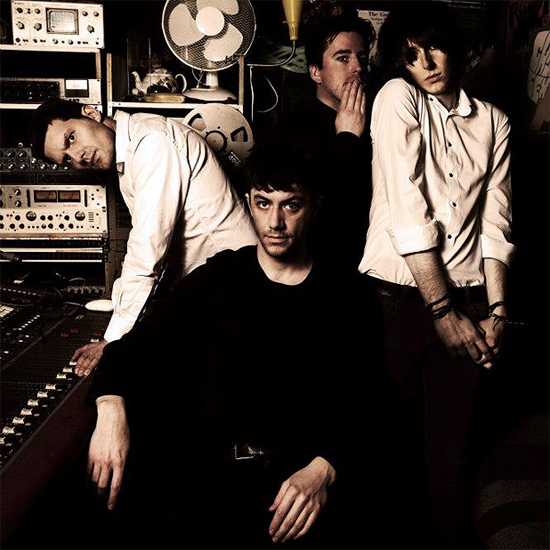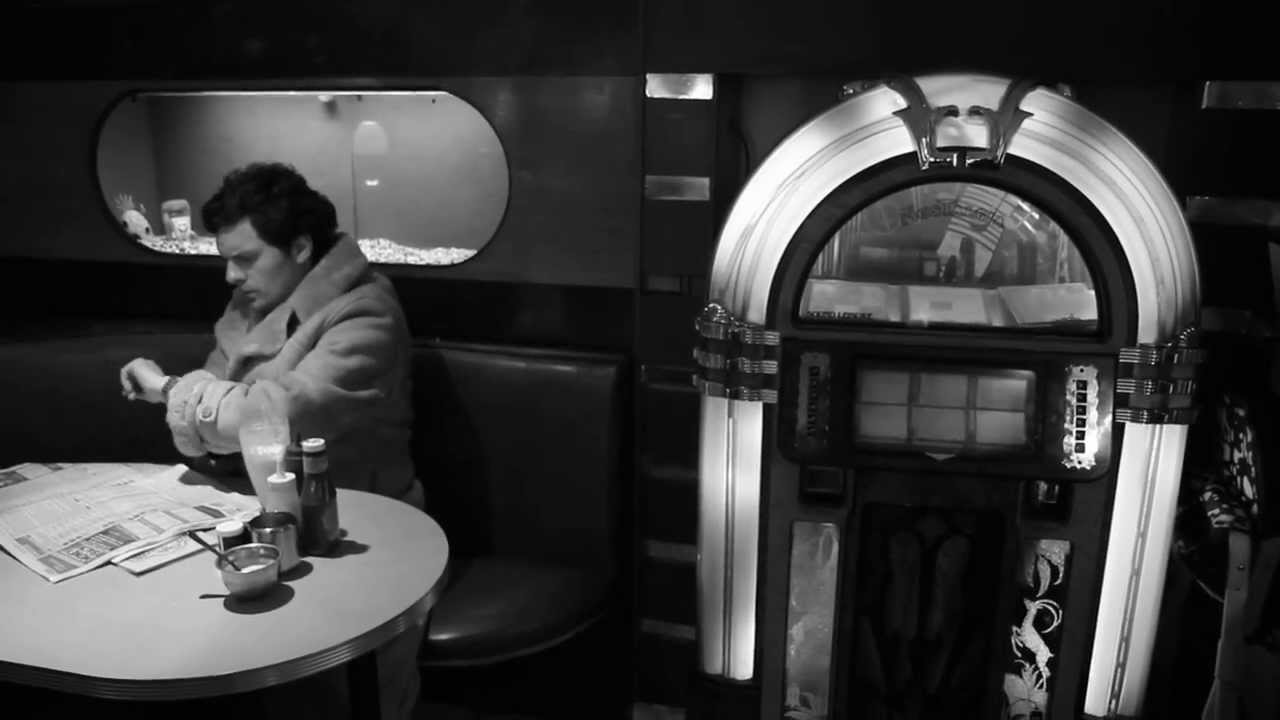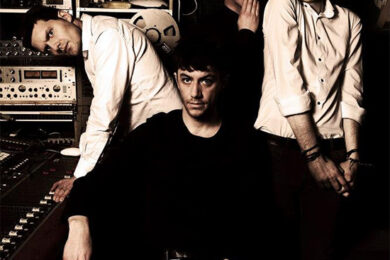With two new documentary films – Big Gold Dream and Songs from Northern Britain – in production charting The Sound of Young Scotland from 1977-85 and 1986-92 respectively, the recent reissue of all four Orange Juice LPs, last year’s return to the stage of Jazzateers, and the release of Simon Goddard’s book Och Aye The Noo Wave: The Preposterous Story of Postcard Records in spring, there is a lot of nostalgia for the golden age of Scottish independent music at the moment. But what of the now? What of the new?
Well, it’s good to report that bands emerging from Glasgow are also making lots of noise just now. Chief among them are Casual Sex, whose efficient, minimalist post-punk is complemented by singer Sam Smith’s lyrical take on everything from sexual shenanigans to nationalist politics, on songs such as ‘What’s Your Daughter For?’, ‘We’re All Here Mainly For The Sex’, ‘Bastard Beat’, ‘National Unity’ and ‘Nothing On Earth’. The results, most recently heard on The Bastard Beat EP and soon to appear on a new compilation on Glasgow’s We Can Still Picnic label, recall at various times ESG, The Pop Group, Pulp, PiL and The Fall.
Alongside new Domino Records signings The Amazing Snakeheads, who bring a palpable sense of boot boy menace and danger to their live performances, Casual Sex are seen as the band most likely to follow in the footsteps of the great alternative Scottish bands of yore – from Orange Juice, to Josef K, to Belle & Sebastian, to Franz Ferdinand. And whilst the lineage is acknowledged and respected, the band are no throwbacks.
We meet in a Glasgow pub (The Finneston, if you must know), where singer Sam is joined by guitarist Ed Wood and drummer Chris McCrory. Bass player Peter Masson is not present, his place at the table instead taken up by Sam’s dad, Alan, who is up for a visit and chips in with bon mots and anecdotes that suggest he’s every bit as rock and roll as his son, between regular drags on an e-cigarette – a habit he shares with Sam. The band’s fortunes are on the rise; after their current tour, traversing the UK, they’re moving on to SXSW in Austin, Texas.
They have every reason to look forward to the trip to Texas, having won acclaim for their debut US dates supporting Franz Ferdinand late last year – after last-minute funding from Creative Scotland allowed them to organise visas and plane tickets with less than 24 hours to spare. The Wall Street Journal‘s veteran rock critic Jim Fusilli was suitably impressed, raving about them despite the band being held in Homeland Security for two hours, their gear failing to make it across the Atlantic, and the subsequent delayed start time of their US debut at Arlene’s Grocery in New York leaving them a mere 20 minutes to race through their six-song set on borrowed equipment.
"We went on, we played, we left. We were too worried about everything else to get nervous about the gig," recalls Smith, who previously fronted Chemikal Underground signings Mother and the Addicts. "Apart from Philadelphia, which was half full when we went on, we played to full houses every night. Then we’d watch Franz play, and we were so giddy with excitement. It was great."
"They booked the nicest possible historical venues," says Wood. "Franz were amazing to us. We knew them from around Glasgow, I’ve known Paul the drummer since they started. Watching their rise to fame, when they were getting heavy famous, was really strange."
And, indeed, something similarly strange could be happening this year this year, as more of us take solace in Casual Sex.
Take us back to the beginning – where did Casual Sex spring from?
Sam Smith: Well, it started really at Green Door Studios, where I work. I got a body of work together and needed a band to play live. Someone put me in touch with Ed, who I’d met a few years earlier at a party. It evolved slowly after that, and because I work at the studios, where we do sessions for young musicians, we met Chris soon after that. Pete knew me from my previous band and wanted to be involved, but it was originally me and Ed.
Ed Wood: I hadn’t done anything musically for two years, and was desperate to get something on the go. I got a random call, came down to the studio to play drums, but Sam was a better drummer than me, even while singing, so I learned the guitar parts.
SS: There were a few shaky line ups to start with, then once Pete and Chris were involved, it evolved from being a band playing my songs to a creatively working together.
EW: All of them except myself have different projects on the go as well. Sam is constantly writing music, Pete is producing bands as well in his own studio.
Don’t most bands save the side projects until they’ve done a few albums and fallen out with each other?
Chris McCrory: We are all engineers or producers, and work with other people so it can all get pretty geeky, but it all feeds back into the band. I’ve just finished a new project with a band I haven’t got a name for yet.
SS: We are talking about another side project, a party band.
So is Green Door Studios a real hub in Glasgow?
SS: When I first moved to Glasgow, it was all about the Art School. But the next hub for me has been the Green Door Studios. Most Glasgow bands at some points have come through the doors of Green Door, either recording there or being involved with the courses and projects.
EW: Most of the bands we played with were from there.
SS: Sons & Daughters recorded there, and they said: "have you got your band together yet, Sam?" They said we had to get ready, because we would be supporting them at their album launch gig. They didn’t give me the chance to say no.
How supportive is the music scene in Glasgow?
SS: I noticed as soon as I moved here years ago that there was a real creative energy. People were doing stuff, they weren’t just posing – you have to keep it a little bit real. People get on with it here, it doesn’t feel like they are waiting for permission to do something. There is a supportive energy, it sounds a bit new age, but it means you are allowed to do stuff that isn’t great all the time.
EW: We are continuing a Glasgow tradition. And everyone just tells you to have a band, you see Stuart Murdoch or Davy Henderson, they all want you to be in a band.
SS: I think living in a post-industrial environment – the thrusting powers of industry have faded – this is what places like Glasgow and Sheffield have in common.
EW: Both Edinburgh and Glasgow, the two major cities were very poor. The slums of Glasgow brought up artists who didn’t get much of an education unless they got into the Glasgow School Of Art – the Glasgow Boys, arts and crafts, it is all part and parcel of the music scene here. It crosses over. I remember thinking how well everyone was dressed here, everyone had good shoes, trousers, the right jacket – and the best dressed people were all part of the indie music scene. That is because of the art school and the heritage.
What are your main memories of your US tour with Franz Ferdinand?
EW: They were total gentlemen, we were in their dressing room most nights stealing their beer. I was sick in the van.
CM: We didn’t even think we would get there in the first place, but we got there, we played well, we held it together as a group. We came back a stronger band for the experience.
EW: American audiences love a bit of showmanship, it gets them going – so by the second show we were properly dancing.
Ok, so Casual Sex as a name: playful, provocative, sleazy, or all three?
SS: I had lots of ideas, but Casual Sex was the one that made us snigger the most. A mother’s nightmare! It can be taken as sophisticated and sexy, or more Carry On Camping. And either way it works.
EW: It was hard for a while, to go with it, because of the nature of the name. It is good, but we weren’t sure whether it would work for radio. In the end it works in our favour.
CM: I think it really works, because it is just dirty enough, but not too dirty…
How has the sound evolved from the start until now?
EW: When we started, I was learning Sam’s songs, so it was about getting this sound that had already been created right. But we have such distinctive playing styles.
SS: I like simple bass and drum music, I like dub, I like rock, punk, and that goes for electronic music as well. We are still writing in a pop tradition and we are a guitar band, but I was trying to get the music that I like to listen to, like ESG or Public Image Ltd, and keep those very simple tempos and song structures. The temptation is to put so much on each song in the studio – and people think we have loads of studio time, because I work there, but we don’t – but it is better to be efficient.
You can hear that there is a lot of space in the song.
SS: There’s top and bottom, but there is the window in the middle. If you put loads of stuff in there, it becomes like white noise.
EW: ESG were definitely one of the bands we formed around. I was never really into dance music, and I went to one of the ESG shows at Optimo and it turned me on to a completely different world of music. They survive on bass, drums and vocals.
SS: The reason I’m drawn to records like Caberet Voltaire, early hip hop, The Pop Group – they haven’t become part of a genre yet. They are basically playing. I love a lot of early dub, the 70s period. You get bands like Pop Group and those people after punk, going in a few directions. One lot carried on making a noise, the other side went, actually, I like reggae, I like disco, and we have a pretty open musical palette to draw from. I’ll tell you a secret – the bassline for ‘Bastard Beat’ and ‘Nothing On Earth’ are exactly the same. The song ‘Nothing On Earth’ is our homage to the Wild Style soundtrack, produced by Chris Stein from Blondie. I love that record.
This year is a big one for Scotland, and a big one for the band – what are your plans?
EW: Going to SXSW and fingers crossed doing another tour across from the East Coast to the West Coast, that is really exciting. We are all good to go. We have an album to finish by the end of February, and we want more songs than we need.
SS: I’m not sure of release dates, but we’ve been helluva busy writing. We’re trying to get four songs finished this week – sonically they are something like Cluster playing with the JBs.
And what will you be singing about, what makes a good subject for a Casual Sex song?
SS: My personal life, various follies of the past. When the things you write down are true, they come across better, even if some are quite brutally honest. When you know the meaning behind it, it makes me wince. It is the confessional, I suppose, but I can only talk about what I know. If I try to go outside that, I’m in la la land. My heroes are people like Roger McGough, Mark E Smith, John Cooper Clarke. But also, ‘Bastard Beat’ is about my frustrations with the current government.
There are too few bands making political statements these days.
SS: Yes, a lot of people have wanted to divorce politics and music since the 80s, but I think that is part of trying to discredit anything that empowers people. I’m passionate about politics – but I also don’t want to lecture people. ‘Bastard Beat’ is a dig. Because this government is so horrible, so callous…
The Bastard Beat EP is out now on We Can Still Picnic. Click here to visit the Casual Sex site.
Casual Sex are currently on tour. Catch them live in London tonight, then at the following dates:
FEBRUARY
25 – London, Sebright Arms
26 – Sheffield, Harley
27 – York, The Basement
MARCH
01 – Edinburgh, Electric Circus
04 – Glasgow, Mono
05 – Aberdeen, The Lemon Tree
06 – Inverness, Mad Hatters




